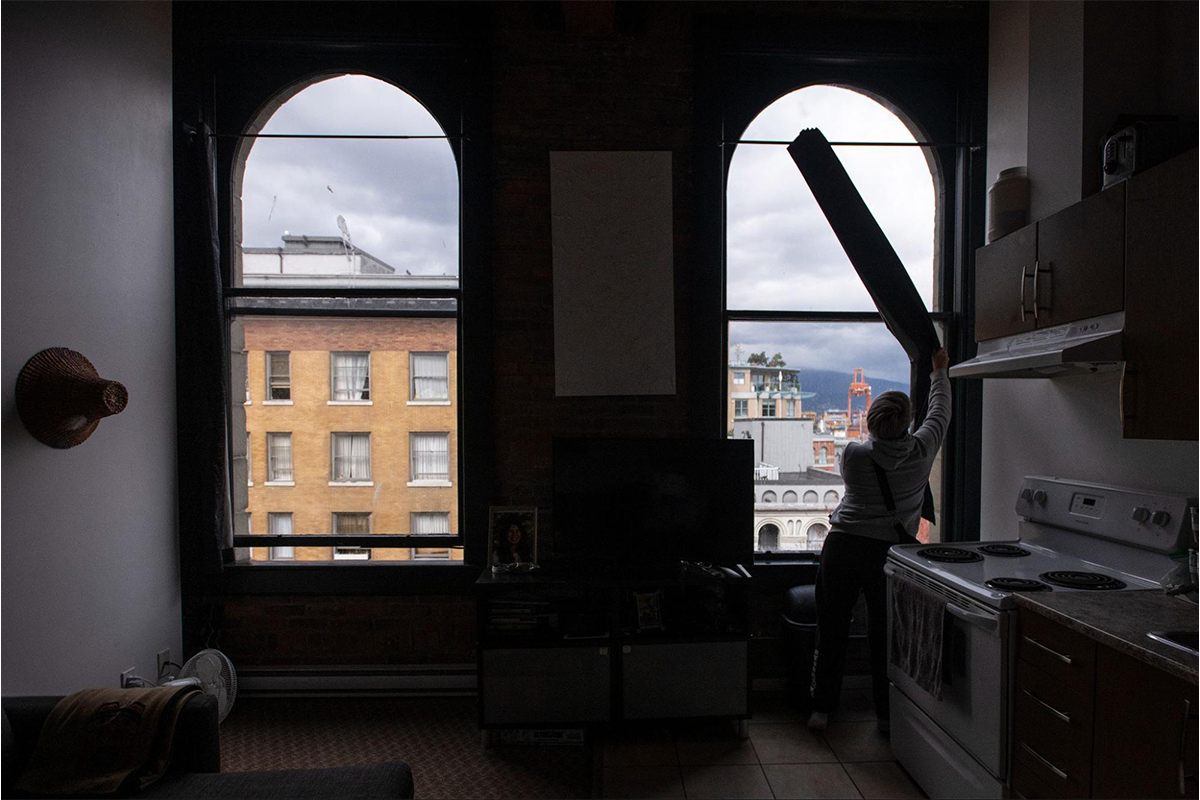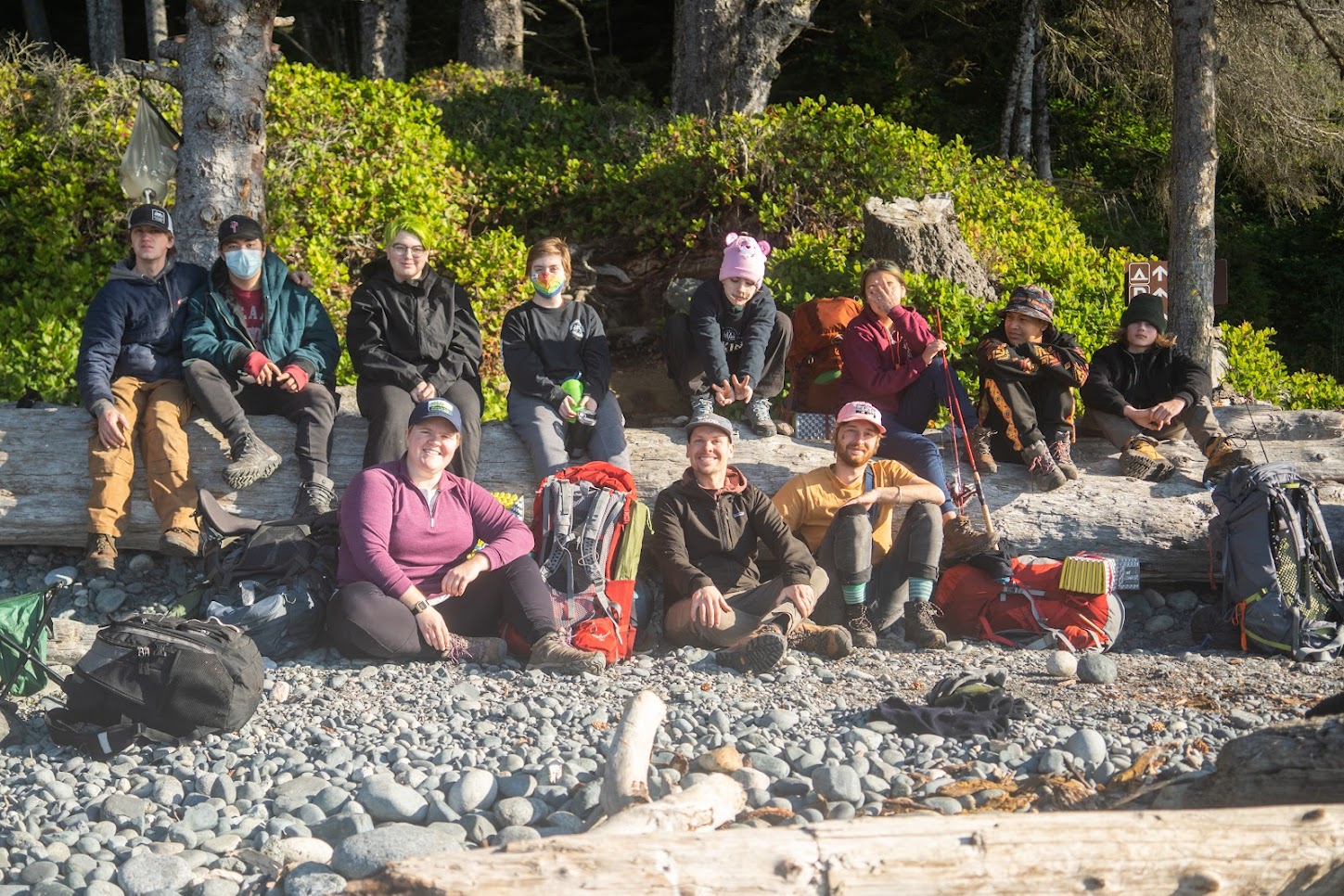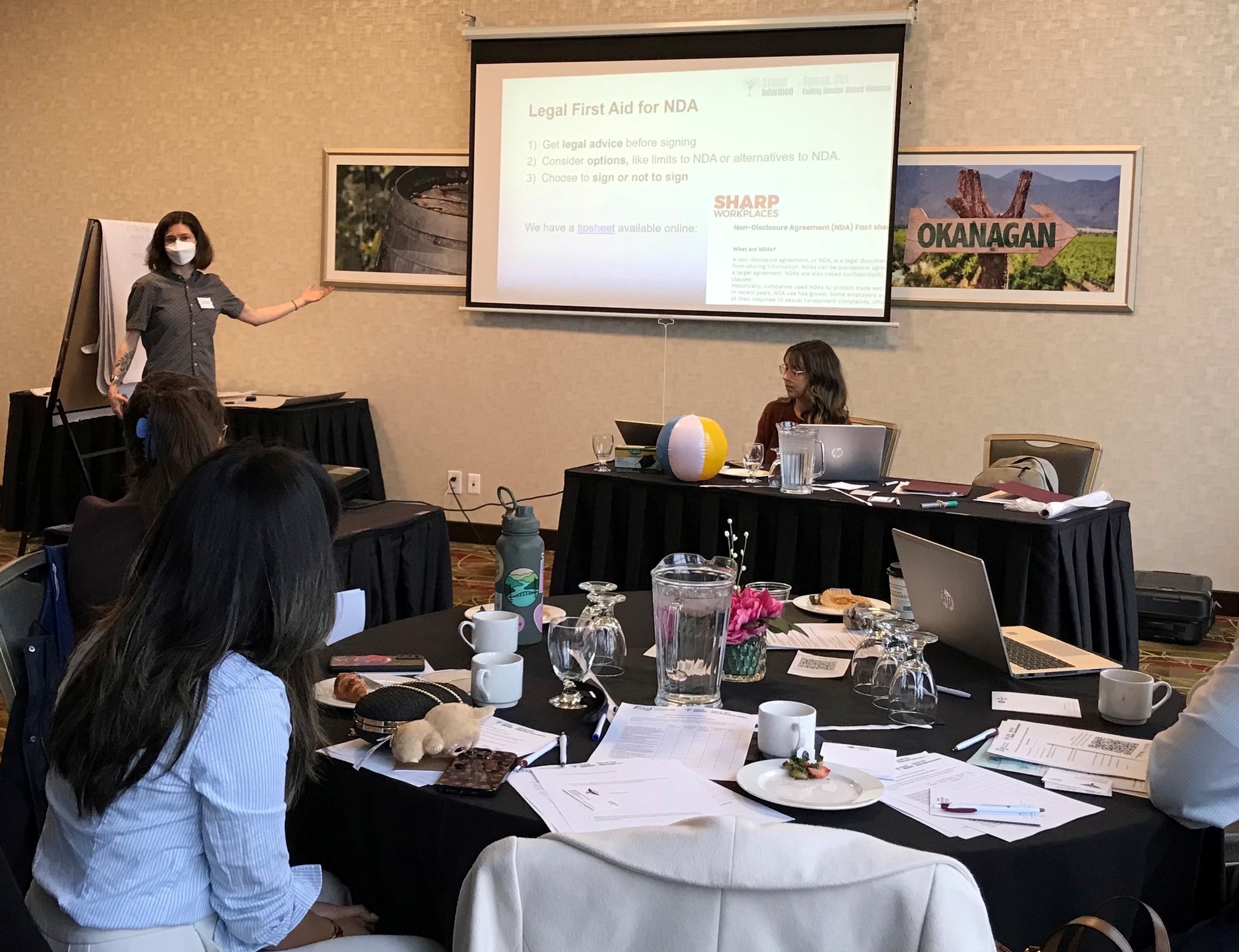Some B.C. non-profits avoiding talking to government due to 'onerous' lobbying laws
Why It Matters
While lobbying registries are common across Canada, in B.C., non-profits have to go through the same heavy requirements as their corporate counterparts. The province’s Lobbyists Transparency Act is about to undergo a review; here is what non-profits say needs to change to keep the registries from draining front-line resources.

Some British Columbia organizations say they’ve stopped talking with the government due to the province’s “onerous and confusing” lobbying transparency legislation.
In a recent survey of B.C.’s non-profit sector, 14 per cent of organizations said they have paused or stopped engaging with the provincial government, attributing this shift to the legislation and reporting requirements.
These are recent findings from Vantage Point, which houses the BC Non-Profit Network and has, since 2020, been exploring the impact of the province’s Lobbyists Transparency Act (LTA) on local non-profits and charities.
The Non-Profit Network asked Vantage Point to conduct a survey about the Act before it goes into review until May 2026. The survey findings will not be published publicly.
“Non-profits are uneasy at being conflated with lobbying by for-profit, commercial businesses,” said Zahra Esmail, CEO of Vantage Point.
“Our sector is largely focused on helping to build strong and connected communities, and we want to be positioned as strong community advocates and as a resource for governments.”
When non-profits become afraid to engage with or lobby the government on crucial community issues, their ability to effectively partner with the government is also limited, Esmail said.
The LTA defines lobbying as an attempt to influence legislative proposals, resolutions, or regulations, programs, policies, directives, and guidelines, and the awarding or terminating of contracts, grants, and financial benefits.
Under the LTA, providing information to public officials without attempting to influence legislation, information requests from public officials, and following a pre-determined or established process is not considered lobbying.
In 2025 so far, four social purpose and community organizations have been issued financial penalties under the LTA: the Atira Women’s Resource Society, the Arts Club of Vancouver Theatre Society, the Vancouver Humane Society, and the B.C. Nurses’ Union were collectively fined more than $15,000.
The Lobbyists Transparency Act: democracy or bureaucracy?
“The Province has taken action to make British Columbia the most transparent lobbying regime in Canada,” said a Ministry of the Attorney General spokesperson in an email to Future of Good.
The Lobbyists Transparency Act aims to track interactions that organizations have with public office holders. These interactions are all recorded in a register that “allows citizens to know who is attempting to influence public office holders’ decisions.”
Businesses, trade unions, professional organizations, chambers of commerce, non-profits, charities, interest groups, and governments other than that of British Columbia are required to register any lobbying activity through the Office of the Registrar for Lobbyists (ORL), which maintains the registry on all lobbying in the province.
All organizations must register any lobbying to public officials done by paid, in-house, or external consultant lobbyists. Public office holders are MLAs, B.C. government employees, or Provincial Entities staff, which includes provincially run boards, societies, authorities, healthcare facilities, and educational institutions.
Organizations must also report any grants and non-repayable contributions received from the government at any level, particularly if they are also involved in lobbying efforts. However, if an organization contracts with the provincial government, it does not need to report these payments under the LTA.
The Canadian Cancer Society is one of the many charities and non-profits with a registered lobbyist under the LTA. Despite the legislation coming from the B.C. provincial government, the Society must report all funding received from federal, other provincial and municipal governments across Canada, said Charles Aruliah, the advocacy manager at the charity.
“A lot of the reporting that we do for the LTA details funding that we receive from outside of British Columbia, that ultimately does not impact British Columbians,” he said.
The legislation also prohibits lobbyists from giving or promising gifts to public officials, unless the gift is given under normal social obligations and the total value of gifts given is less than $100 over 12 months.
All organizations must also report their social media communications with public office holders, especially if they involve attempts to influence public policy.
The Act applies only to organizations; individuals and citizens are not required to record their lobbying communications with public office holders. In the context of non-profits, volunteers are also exempt from registering with the ORL and tracking any lobbying activity. Board members are only exempt from the LTA if they are not paid in any capacity by any organization to engage in lobbying.
There is also an exemption for “small organizations that lobby public office holders infrequently.” Suppose an organization has fewer than six paid employees and has lobbied for less than 50 hours in 12 months. In that case, they do not need to register, unless the organization’s primary purpose is to lobby for or against policy issues.
Public office holders, on the other hand, “have no obligation under the LTA to register lobbying communications they receive.”
It is the responsibility of the lobbyist to register all interactions.
Several of the non-profits Future of Good spoke with said that they believed in the LTA’s fundamental purpose and goal. Organizing for Change, a project by MakeWay, brings together environmental groups across British Columbia for collective action on particular policy areas.
Provincial Lead Lisa Matthaus has found that some non-profits are reluctant to be seen as lobbying at any level of government.
“Companies that are wanting to do the logging and mining and drilling are very much lobbying, and we should not be tying our hands behind our backs,” she said.
“I am a big advocate of lobbying and being proud of it. Somebody has to talk for the trees.”
Meanwhile, the BC Advocacy Coalition, made up mainly of non-profit professional and industry associations, is proposing numerous changes to the LTA: an increase in the $100 cap on gifts, removing the requirement to record every single interaction with public officials, and reintroducing a minimum lobbying hours threshold below which organizations would not be required to report lobbying at all.
Non-profits thrust into the spotlight
Since its inception as the Lobbyists Registration Act in 2001, this legislation has included non-profits. It has since undergone various amendments, including adding a two-year lobbying prohibition period for former public officials and removing a former 100-hour lobbying threshold, below which organizations did not have to report lobbying activity.
With this 100-hour minimum removed, many non-profits suddenly found themselves thrust into reporting requirements with little or no prior experience.
Many non-profits also expressed confusion around the requirement to report social media interactions with public officials. According to Aruliah, information on social media is already publicly accessible, and “reporting it to the registry seems redundant and time-consuming.”
But once those social media interactions are reported to the ORL, it becomes even more frustrating, said Matthaus. Interactions on X and Facebook are given the same weight in the registry as meeting with a public official.
This leads to a lack of nuance in these interactions, said Matthaus.
In May 2025, additional amendments provided some respite for the non-profit sector. Whereas organizations were previously required to report all funding requested and received from the government at any level, they now only need to report funding they have successfully been awarded. Organizations also only have to report funding received every three months, rather than monthly.
New guidance also helped non-profits clarify their reporting obligations if they worked to lobby in a coalition or a network of organizations.
As of the time of writing, there were 1197 active lobbyist registrations across all types of organizations. Data also shows a drop in lobbying activity reports between May 2025 and June 2025.
Among those are for-profit and public companies, such as WestJet and Apple’s Canadian arm, and non-profits such as Greenpeace Canada and Canadians for Clean Prosperity.
The Registry contains details about recent lobbying activity by organizations, which senior public officials were lobbied, and the specific topics that they lobbied on. The ORL also released monthly snapshots of who is lobbying whom across the province, and the issues discussed.
Future of Good spoke with oline Twiss, Deputy Registrar at the ORL and the Deputy Commissioner at the Office of the Information and Privacy Commissioner of BC. “We all know we’re living through a time of increasing polarization in our society, and the fundamental purpose of the Act – bringing transparency to undue influence in government decisionmaking – really goes to the heart of trust in our democratic system,” she said.
She added that her team is open to any questions or clarifications that designated filers might have about their reporting obligations under the LTA.
Matthaus frequently fills information gaps about the LTA for the members of Organizing for Change. She has often called the ORL directly with questions and has found that they have been quick to provide answers.
“They don’t approach it as a ‘gotcha’ thing,” she said. “They’re very much just trying to help people comply.”
Smaller organizations pay the price

Lobbying registries are not unique to British Columbia: there is a federal registry; several provinces, such as Ontario, Alberta, and Manitoba, maintain their registers; and some municipalities, such as the cities of Ottawa, Kelowna, and Toronto, also have lobbyist registries. The City of Winnipeg has a voluntary lobbyist registry.
Despite the prevalence of similar legislation and reporting requirements nationwide, law firm Fasken calls British Columbia’s LTA “one of the most expansive lobbying laws in North America [with] one of the most aggressive regulators.”
For instance, Aruliah has found that other registries only require organizations to file information on lobbying activity or funding received within their particular jurisdictions, whereas the B.C. LTA mandates that organizations report on government interactions across the country at any level.
The B.C. Chamber of Commerce said that the LTA “significantly constrains communications and collaboration with the government” and that the non-profit sector and/or small organizations “should not be obligated to the same level of expectation and burdensome regulations that are for profit, with bigger interests at stake, and/or larger in size with greater capacity.”
In some provincial jurisdictions, non-profits can be exempt from reporting lobbying activity. For instance, in Alberta, Saskatchewan, Manitoba, and Quebec, there are carve-outs for organizations that do not serve managerial, professional, profit-seeking, or union interests.
Since 2020, when the 100-hour minimum threshold was lifted, Vantage Point and other non-profit organizations in B.C. have consistently outlined their concerns with the LTA.
In October 2020, Vantage Point and a group of non-profits wrote to the then Deputy Attorney General about the “chilling impact the LTA is having on [the non-profit] sector.”
At the time, they not only cited concerns about the increased administrative tasks the sector would take on, but also the lack of consultation with non-profits as the legislation took shape, and the conflation of lobbying with advocacy that many in the non-profit sector routinely engage in.
“We’re not staffed by teams of legal experts, and most of us don’t have lobbyist teams,” Esmail said. “Oftentimes a non-profit will hear what is going on in their community, schedule a meeting with their elected official, and ask for what the community is asking for without any formality around it.”
In most non-profit organizations, the designated filer – the person responsible for tracking and reporting all lobbying activities – is likely the Executive Director or CEO themselves, according to the BC Government’s guidance document for the sector.
Later, in 2022, Vantage Point, Board Voice, the Vancouver Foundation, and the United Way of British Columbia also collaborated on a brief that outlined the LTA’s impact on non-profits. The brief further emphasizes the role of non-profits in advocating for communities and critical services and calls upon the Government of British Columbia to “identify and ameliorate any unintended consequences resulting from interpretations of the LTA.”
As part of this 2022 brief, the Canadian Cancer Society told the story of the additional administrative strain the LTA puts on the organization. New requirements required a minimum of 25 hours per month in data collection to enter details about 135 instances of funding requested and received from sources in the country.
The Canadian Cancer Society even considered hiring a full-time employee dedicated to LTA reporting.
“We’re dedicating resources to reporting […] and so those resources are really taking away from our ability to carry out our charitable missions,” Aruliah said.
“In the majority of times, when I’ve been filing [LTA] reports, I have either been subsequently called by [ORL] staff saying ‘You messed up here’, or I’ve had to call them and ask for assistance,” added Tim Agg, executive director of Board Voice, saying the system is not intuitive to use.
“That’s not a terribly efficient system,” he added. “[…] It’s probably well-designed for organizations who have multiple lobbyists, or one administrative person who is doing the filing of the reports, and doing it in volume.”
The Take a Hike Foundation is a youth mental health charity that partners with school districts across British Columbia to deliver youth programs and land-based learning. While CEO Gordon Matchett sees the value in reporting lobbying interactions up to the ORL, he also raised questions about the amount of reporting required for often relatively small funding awards.
“We receive around $150,000 to $200,000 from the federal government a year. On a $7.5 million budget, that amounts to 1 per cent of funding,” said Matchett. “So we’re not receiving that much from the government, and yet there is so much reporting that we need to do because of it.”
Matchett also welcomed the shift from monthly to quarterly reports, saying that it had significantly reduced the organization’s workload. However, the Take a Hike Foundation, like many other non-profits, still had to report grants of less than $1,000.
“I wonder how much time we’ve spent on doing the report. It may have cost us more to raise that money than we actually raised.”
Policy shifts to support the non-profit sector

In a submission to the Special Committee reviewing the LTA, the ORL stated it has conducted 7,000 compliance reviews since 2020. In half of these cases, the ORL said it contacted the lobbying organization or designated filer to notify them of corrections.
The Vancouver Humane Society had been lobbying public officials without realizing that the legislation had changed, said Executive Director Amy Morris. As soon as they learned the legislation applied to them, they immediately gathered the relevant information and submitted “every single interaction” they had had with a public official in that period.
“By ‘lobbying’, it was essentially just writing letters and requesting meetings, not even getting meetings,” Morris said.
The non-profit was then asked if it wanted to submit additional information and details about its lobbying interactions, but the ORL still decided to issue a fine.
“We decided not to appeal because the body that we were going to appeal to was the exact same body that already issued the notice,” she said. “So it would have been the same small group of individuals reviewing it that made the [penalty] decision in the first place.”
The Ministry of the Attorney General has said that the recent May 2025 amendments to the LTA—to not have to report requested funding and to extend the timeline required to file financing received from the government—are specifically for the benefit of smaller organizations and non-profits, to “ease the outsized reporting burden” they had been experiencing.
The ORL recognizes that it might be too soon after these amendments come into force to assess their impact, but for Jacqui Mendes, executive director of the Community Legal Assistance Society (CLAS), the move from monthly to quarterly filing has made the organization’s reporting process much easier.
CLAS is a non-profit law firm that provides free legal assistance and representation in British Columbia. The organization’s frontline work serves around 8,000 people per year and receives funding from various provincial sources, such as the B.C. Ministry of the Attorney General.
CLAS also receives funding from federal sources, including Women and Gender Equality Canada (WAGE). Mendes said both federal and provincial sources of funding have to be reported under the LTA.
In some cases, but infrequently, CLAS also advocates for legal reform.
ORL staff have sometimes contacted Mendes and her team if the reports filed are late or if they are missing information. However, she and Aruliah pointed to the “unintuitive” navigation and user experience on the ORL’s online filing system.
“The navigation of the site is truly horrible,” Mendes said. “I think the differentiation between a lobbying report and a financial report confuses a lot of people.”
She added that she was unsure why the most senior person in the organization had to be the designated filer under the LTA’s rules, especially when the CRA does not require this.

Act goes to review
Despite CLAS’s challenges in collating and reporting under the LTA, Mendes said that the requirements do not affect the organization’s willingness to engage with the provincial government.
Aruliah feels differently: “[The LTA] certainly causes us to reassess our desire to advocate for policy change, because anytime we do so, it requires these significant reports.
“Luckily, our organization is quite large and so we’re able to dedicate those resources to filing these reports, as onerous as they are. Other organizations don’t have that capacity. It really removes non-profits from public discourse and the ability to engage with decision makers on key issues.”
Despite being a big advocate of lobbying transparency, Matthaus has observed a “chilling effect” that comes with B.C.’s rigorous reporting requirements. She said, however, that this is more a mindset challenge in the non-profit sector than a fault with the ORL’s guidelines. Many non-profits don’t want to be seen as lobbyists, she said.
“I’ve had some groups say that they are small organizations, they don’t have staff and do not want to appear on the registry,” she said. “And then either I have to do a whole bunch of education about why this is okay, or we take them off [a collective letter].”
A January 2025 letter to BC’s new Minister of Social Development and Poverty Reduction, Sheila Malcolmson, includes a specific mandate for the Minister and the Parliamentary Secretary for Community Development and Non-Profits to work actively with the sector on the ongoing review of the LTA.
The Special Committee to review the LTA comprises five government and opposition MLAs. On July 21, 2025, the Committee invited organizations and individuals to write in submissions regarding the LTA.
Interested parties can provide input until Sept. 19, 2025, and the Committee will report back to the Legislative Assembly by May 2026.
The non-profit sector needs to understand the purpose of this information, why it is being collected and how it is being reviewed, said Sarah Kim, senior manager of advocacy and engagement at the Vancouver Foundation.
“Right now, it’s a bit of an unknown thing that is looming,” she said.

